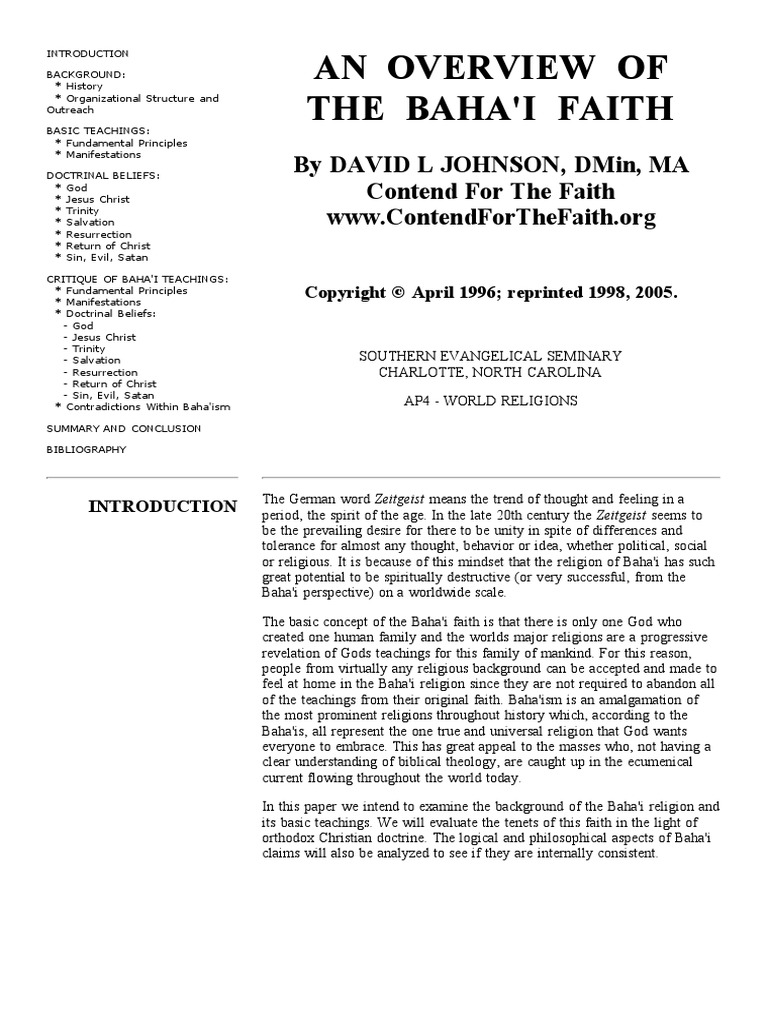The Baha’i Faith, a burgeoning spiritual and social movement, stands as a beacon of hope in a world often divided by discord and misunderstanding. At its core lies a profound promise—one that seeks to unify humanity under the principles of love, equity, and collective responsibility. This article endeavors to elucidate the quintessence of Baha’i teachings, examining how they offer a transformative perspective on personal and communal growth while piquing curiosity about the potential for a cohesive global society.
The foundation of Baha’i teachings rests upon the acknowledgment of the oneness of humanity. This pivotal tenet posits that regardless of cultural, religious, or social backgrounds, all people share a common origin and destiny. This doctrine not only challenges the propensity for division but also inspires individuals to embrace diversity as a source of strength. By fostering a mindset that transcends parochial affiliations, the Baha’i Faith engenders a community rooted in mutual respect and understanding.
Central to this vision is the Baha’i principle of consultation. In an age characterized by polarized opinions and dogmatic assertions, consultation serves as a transformative methodology that invites inclusive dialogue. This approach entails examining issues collaboratively, fostering an atmosphere where diverse viewpoints can coexist. Engaging in genuine consultation demands humility and a willingness to transcend ego-driven desires, thereby cultivating an environment conducive to collective wisdom. The profound implications of such a practice extend beyond individual interactions, heralding a paradigm shift in societal decision-making processes.
The Baha’i teachings imbue followers with a sense of purpose that is intricately linked to service. The notion that personal development and communal advancement are inextricably intertwined resonates deeply within this faith. Individuals are encouraged to channel their talents and resources toward uplifting their communities, recognizing that the progress of one is emblematic of the progress of all. By fostering a culture of service, the Baha’i Faith posits that collective empowerment is achievable through the myriad contributions that each individual brings to the table.
Moreover, the Baha’i concept of the “elimination of prejudice” serves as another vital pillar in the quest for unity. Prejudice, whether based on race, gender, or socio-economic status, has historically plagued societies, sowing seeds of discord and animosity. The Baha’i teachings advocate for the eradication of such biases, championing a vision where individuals are evaluated based on their merits and contributions rather than superficial attributes. This transformative approach invites inquiry into the ingrained social constructs surrounding identity, encouraging adherents to engage critically with their own preconceptions.
Education, a cornerstone of Baha’i philosophy, is heralded as a catalyst for personal and societal transformation. The movement emphasizes the importance of moral and spiritual education alongside intellectual development. The holistic nature of this educational paradigm aims not only to cultivate informed individuals but also to instill virtues that are essential for the prosperity of communities. By promoting a nurturing environment for learning, the Baha’i Faith establishes a framework where inquiry and curiosity are rewarded, resulting in a culture that cherishes knowledge as a pathway to enlightenment.
In addition to these profound teachings, the Baha’i Faith’s emphasis on the harmony of science and religion presents an intriguing dimension for exploration. In contemporary society, skepticism often arises from perceived dichotomies between empirical knowledge and spiritual beliefs. The Baha’i perspective advocates that true understanding arises when science and religion are viewed as complementary rather than contradictory. This synthesis encourages a comprehensive worldview, fostering curiosity about the intersection of material existence and spiritual truths.
The promise of global governance is another compelling aspect of the Baha’i Faith. The vision of a world governed by just principles is not merely an idealistic dream; it is a realistic aspiration rooted in a deep understanding of humanity’s interconnectedness. Baha’is believe that a unified global society requires structures that reflect collective values and aspirations. Herein lies the invitation to ponder the mechanisms that might facilitate such governance—an exploration that stimulates curiosity about how humanity could organize itself to address the multifarious challenges of the 21st century.
As humanity collectively grapples with unprecedented challenges, including climate change, social injustice, and economic disparity, Baha’i teachings appear as a clarion call for action. The faith advocates for global cooperation, urging individuals to rise above nationalistic sentiments to embrace a universal identity. This shift in perspective enables a reevaluation of priorities, inviting collective responsibility as a means of fostering sustainability and peace.
In conclusion, the unifying promise of the Baha’i Faith encapsulates a transformative approach to understanding the human experience. By espousing principles that advocate for the oneness of humanity, the elimination of prejudice, the significance of consultation, and the harmonious relationship between science and religion, the Baha’i teachings foster an optimistic vision of collective progress. Ultimately, this exploration beckons individuals to reconsider their role in a shared future, piquing curiosity about the profound potential for unity in diversity—a promise waiting to be realized.
